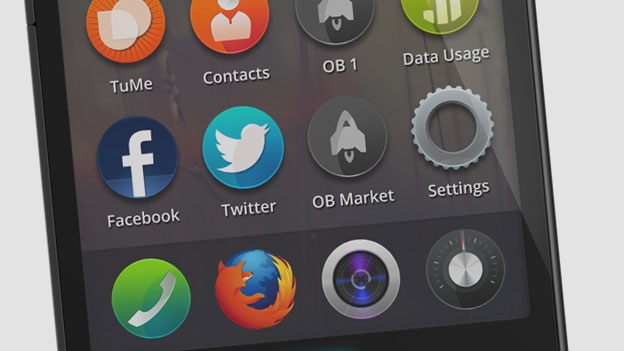Android and iOS rivals: Firefox OS, Ubuntu Touch, Tizen and Sailfish
What we know about Firefox OS, Ubuntu Touch, Tizen and Sailfish


It's operation take down Android and iOS as we reveal details about Firefox OS, Ubuntu Touch, Tizen and Sailfish operating systems launching in 2013
We've used the phrases 'iPad killer' and 'Galaxy S2 challenger' all too often over the past few years as Apple and Google continues to dominate smartphone and tablet proceedings. As a raft of new phones prepare to launch with ramped up processors and brighter, more vibrant screens the real threat for the chaps at Cupertino and Mountain View perhaps does not lie with the hardware, but the software that aims to put those quadcore chips and camera megapixels to good use.
Along with Windows Phone 8 and BlackBerry 10, four new mobile operating systems are planning to make like a little more difficult for Apple and Google in 2013. Here's what we know so far about Firefox OS, Ubuntu Touch, Tizen and Sailfish.
Mozilla Firefox OS
After Firefox OS developer phones were teased in January at CES, Mozilla officially announced its HTML5 based operating system which is aimed at low end smartphones and makes websites work like apps. Running those applications using Firefox browser engines, the mobile OS is designed to work with less power and will cost less with developing countries in Eastern Europe and South America amongst the target markets.
The ZTE Open was announced as the first Firefox OS smartphone and will launch in mid 2013 in Spain, Columbia and Venezuela with a 3.2-megapixel camera and 3.5-inch HVGA TFT touchscreen display amongst the specs. Twitter has also announced that it will be providing an official app when the first Firefox OS handset launches while some very high profile public backing has come in the shape of Sony and its plans to launch a Firefox OS smartphone in 2014.
Link: Mozilla
Ubuntu Touch
Already a popular linux based operating system for desktops Canonical has overhauled the design of the operating system and optimized it to work on mobile devices with a view to have the OS working on both budget and high end smartphones and tablets. There's a new user interface which utilizes all four edges of the screen to interact with apps via gestures such as the Launcher which is hidden on the left of the screen and system indicators at the top of the device and it even has the capability to support split screen multi-tasking.
Get all the latest news, reviews, deals and buying guides on gorgeous tech, home and active products from the T3 experts
Essentially a more simplified version of the Ubuntu OS will work with native, web and HTML 5 apps including Facebook, Twitter and Evernote which should make up for the fact that it is unlikely to launch with an official app store. It's already being ported to work on a host of devices including the Galaxy Nexus 4 and Nexus 10 tablet and has already received a positive reception since its MWC unveiling so expect to hear much more about Ubuntu Touch in the coming year.
Link: Ubuntu
Tizen 2.0
Thanks to the success of Android-powered handsets like the Galaxy S2 and Galaxy S3, Samsung has enjoyed something of a smartphone renaissance in recent years and Tizen is the Korean manufacturer's attempts at creating its very own mobile operating system it hopes will offer a genuine alternative to Android and iOS.
Having worked with Intel on the open source Linux based platform the latest version Tizen 2.0 is set to incorporate features from Samsung's Bada operating system which enjoyed some success packed inside Samsung Wave smartphones with plans to appear on smartphones, tablets, smart TVs, netbooks and in-car entertainment.
With support for native and HTML5 apps, games like Cut the Rope and video sharing site Vimeo have been demonstrated on early Tizen prototype handsets to show what is currently capable of and we can expect to see the first Samsung Tizen phones as early as July with Huawei also expected to embrace the operating system.
Link: Tizen
Jolla Sailfish
The Finnish company (pronounced Yo-La) was formed by former Nokia employees who worked on the Linux based MeeGo operating system which only managed to make it onto the Nokia N9 before the company decided to ditch it. Jolla is calling Sailfish 'the first truly open ecosystem' and will keep it that way with the help of community support which it hopes will help get the operating system on Jolla branded smartphones as well as tablets, smart TVs, inside cars and other devices.
The Sailfish OS which is heavily gestured based has elements which make it look like a bit like BlackBerry 10 and Windows Phone but it is pushing its multitasking capabilities which will allow users to keep active applications pinned to the homescreen which you can use without having to go deep into the application to activate it. Personalization is also a big focus with features like Ambience which incorporates colours from photos to adjust the shade of the user interface.
We can expect the first Sailfish OS smartphone in 2013 but China will be the first market to be able to buy one with Finland and Europe next on the launch hit list. The good news is that it will support multiple chipset technologies which should ensure it is compatible with high end devices.
Link: Jolla
Michael Sawh studied Journalism and Media Studies at Staffordshire University before joining T3 as a Feature Writer. You can find articles by Michael on the topics of Apple products, Android phones, laptops, bikes, games consoles, smartwatches and much more on T3.com, as well as neat retrospectives on classic tech products, events and game series.
